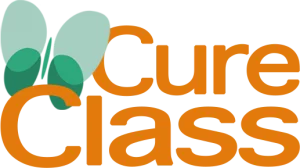The Pros and Cons of Online Therapy: A Comprehensive Guide
Introduction
Online therapy, a relatively new phenomenon in the field of mental health, has gained significant popularity in recent years. With the advancements in technology, individuals now have the option to seek therapy from the comfort of their own homes. But is this newfound convenience all it’s cracked up to be? In this comprehensive guide, we will explore the pros and cons of online therapy and delve into its potential impact on mental health.
The Pros of Online Therapy
1. Accessibility
One of the major advantages of online therapy is its accessibility. It breaks down geographical barriers and allows individuals to connect with therapists from all over the world. Whether you live in a remote area or struggle with mobility issues, online therapy offers a solution that traditional therapy may not.
2. Convenience
Let’s face it – life can get hectic. From juggling work commitments to managing family responsibilities, finding time for therapy sessions can be challenging. Online therapy eliminates the need for physical travel and allows individuals to fit therapy into their busy schedules. No more rushing through traffic or scrambling to find parking spots – therapy can now be accessed from the comfort of your own home, at a time that suits you best.
3. Affordability
Traditional therapy can be expensive, and for some individuals, cost may be a significant barrier. Online therapy, on the other hand, tends to be more affordable, making it a viable option for those who may have limited financial resources. Plus, there are often various payment plans and subscription options available that can cater to different budgetary needs.
4. Anonymity
For many, the thought of pouring their hearts out to a stranger in a face-to-face session can feel intimidating. Online therapy provides a level of anonymity that can make individuals feel more comfortable expressing their thoughts and feelings. It allows for a sense of security and privacy that may be particularly beneficial for those dealing with sensitive or stigmatized issues.
The Cons of Online Therapy
1. Lack of Personal Connection
While online therapy offers convenience, it cannot replicate the unique sense of connection that comes with face-to-face interaction. In-person therapy allows for nonverbal cues and subtle nuances to be observed, providing the therapist with valuable insights. These cues can be missed in the online format, potentially limiting the therapeutic experience.
2. Technical Difficulties
As with any online activity, technical difficulties can arise during online therapy sessions. Video calls may freeze or disconnect, audio quality may be compromised, or there may be issues with the overall internet connection. These disruptions can hinder the flow of therapy and create frustration for both the therapist and the client.
3. Limited Scope
Unlike traditional therapy, which often involves in-person sessions in a therapist’s office, online therapy is typically limited to video or phone calls. This may restrict the type of therapy approaches that can be effectively utilized. Certain therapeutic modalities, such as body-based or experiential therapies, may not translate as well in an online format.
4. Ethical Concerns
With the rise of online therapy, ethical concerns have emerged. Privacy and confidentiality may be compromised due to potential issues with online security. It is crucial for individuals to thoroughly research and choose reputable online therapy platforms that prioritize client confidentiality.
Conclusion
Online therapy offers a range of benefits, including accessibility, convenience, affordability, and anonymity. It has the potential to revolutionize the field of mental health and make therapy more accessible to a broader population. However, it is important to consider the potential drawbacks, such as the lack of personal connection, technical difficulties, limited scope, and ethical concerns.
As a psychologist, I have witnessed firsthand the positive impact that online therapy can have on individuals. I have seen clients overcome obstacles, find solace, and embark on journeys of self-discovery through the power of this innovative approach. However, it is crucial to weigh these benefits against the potential limitations and make an informed decision based on individual needs and circumstances.
Ultimately, online therapy can be a valuable tool in the mental health landscape, but it should not be seen as a replacement for traditional therapy. It is important for individuals to explore all available options and consult with professionals to determine the most suitable approach for their unique needs. With careful consideration and the right guidance, online therapy can be a valuable ally on the path towards mental well-being.
__
Jacob Alexander Johnson, Psychologist at Cure of Mind











